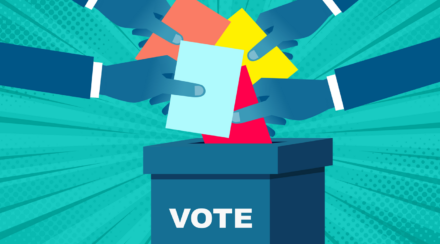Menu

Leverage Diversity: Sharing Hearts and Pooling Minds
Diversity brings a range of experience, differences in mindset, background, upbringing, world view, etc. and, as a result, diversity of thinking.
When we talk about the business benefits of diversity and inclusion we are thinking of the removal of inequitable barriers and widening of the talent pool, the richness of culture that a diverse workforce can bring and, from a business perspective, the wide range of viewpoints and ideas which create an engine for innovation and increased profitability.
Harnessing other people’s brains is a key leadership skill, as is also being able to understand others’ needs and appealing to their hearts through defining and articulating a motivating shared purpose.
The yin and yang of leadership – ‘Winning Hearts and Minds’ – should, I believe, be updated to ‘Sharing Hearts and Pooling Minds’.
The drive for diversity and inclusion in organisations is, thankfully, moving forward at pace and will hopefully lead to more diverse humans around the leadership table and thus diverse thinking in the most senior of leadership teams.
In my experience of working with senior leadership teams, there is often a vague understanding of the need and benefits of diversity. They know it’s a ‘good thing’ morally but often cannot articulate why from a business perspective and, even if they get the diverse thinking argument, they fail to fully leverage the benefits.
Many appear ill-equipped to know what to do with ideas different to their own when these appear around the senior leadership table. At its worst, they are confused that the new person that they have invited to share the table isn’t thinking like they are, isn’t towing the party line or ‘fitting in’.
Some leaders seem particularly focused on creating and ensuring team harmony, seeing the strongly held differences of opinion as conflict and to be avoided. They see a team as functioning ‘well’ when there is not dissent. But, as with many things, it is ‘how’ we challenge, not the challenge itself, that is the key. We don’t want harmony at all costs – and we don’t need outright conflict.
What we do need is ‘respectful challenge’. Ensuring that there is plenty of emotionally intelligent and respectful challenge of each other, is in my opinion, a business culture change that we need to make happen and soon.
Respectful challenge sits alongside co-creation but acknowledges that we need to draw differences of opinion out, in order to benefit from them and truly co-create, not bury the differences or paper them over in the name of being collaborative.
I am suggesting that we need to bring differences of thinking out into the open around the leadership table in a productive manner; to make it the norm to challenge openly, honestly but respectfully; to know that we don’t have the only answer, the one and only route; to really listen to and question each other with curiosity; and to find the nuggets in each of our ideas that when combined really are pure gold.
Our aim for leveraging diversity of thinking surely is not to agree quickly and move on, or shout down ideas that don’t make sense to us, our aim is to shine the light on different ideas and opinions, examine and find the optimum ideas for our organisations and then agree how to proceed.
Making the time to listen to multiple ideas drawn from many people may seem to be the antithesis of our fast moving, quickly decisive ways of working currently (and I’m not saying that we don’t have to make quick decisions in times of urgency), but we seem to have a business trend which pushes Pace over Quality – and I believe we are the poorer for it.
I have seen the following range of issues in leadership teams (sometimes several in the same team):-
- ‘Group think’ – where there is a lack of diverse thinking at all, such that the members are so aligned in their view of the world (same backgrounds, experiences etc) that “there cannot possibly be any other way to do things or think about things” – can there?
- Intimidating leader – will brook no dissent, closes down debate, already thinks they personally have all the answers and that their job is to get everyone else to see the merit of their idea and agree with it.
- Learned helplessness – often as a result of the intimidating leader, people give up airing views especially those they believe are not aligned with the leader’s viewpoint. They tend to leave the ideas and strategy to the alpha leader. This is dangerous for so many reasons – how good are the ideas from the leader? Harnessing other ideas is likely to create better end results and get buy-in. People are demotivated when they don’t have a voice – even senior leaders – and may leave.
- Silent dissent – the team seem to agree with a course of action, or do not surface objections around the table, but mutter dissent outside of the meetings in small groups of allies. As a result, issues return to the table time after time or proceed slowly as people do not agree with the course of action and drag their feet.
- Open aggression – the team all sit in their silos only thinking about their own business function and argue their position without listening to each other or focusing on what is best for the whole organisation.
None of the above are particularly healthy or lead to optimum functioning of a leadership team.
So, what are the solutions? Here are a few:
- Hire diverse talent and recognise that what you will hopefully get is lots of difference in opinion, thinking and ideas. As a leader YOU need to learn how to best harness the differences and not try to bend diversity to fit into the existing ‘group think’ or shut down dissent. (I coach leaders to manage their concern over dissent and control their tendencies to take over and drive only their point of view).
- Really understand that there are individual differences in thinking, not that someone just doesn’t get what you are saying or isn’t as smart as you! Remember that our goal is to understand each of our team’s unique viewpoints on topics precisely because each person truly does not think the same as the next and may have some great ideas and insights that may not occur to us. (I run neuroscience training to help individuals understand this key point.)
- Develop the habits of active listening and questioning with curiosity, create team norms around these behaviours. I do this work with individuals and teams.
- Encourage and make time for challenge – not conflict – and make respectful challenge a stated behaviour of your leadership team, reminding each other every meeting and interaction.
- To respectfully challenge, team members need to feel that the environment is psychologically safe for them to step up and share a different perspective. So, develop your emotional intelligence, EQ – the ‘how’ we interact and communicate with each other – and hire talent with strong EQ or develop the EQ of the whole team. (I run individual EQ assessments and coaching and EQ awareness sessions).
- Ensure that whoever is leading the meeting draws out the thinking of all in the group that wish to contribute and allows for different methods of contribution. For example, some people prefer to reflect and then suggest ideas – so send details of the key issues out ahead of the meeting or allow them time after the meeting to come back with thoughts.
Now, the cry I often hear when discussing respectful challenge and co-creation is “it takes so much longer to hear others’ views”. My response to that is yes, it can take time, but the outcomes will be of higher quality, you will innovate more frequently, you will have more buy-in and less instances of having to ‘do-over’ as potential objections and new ideas will have been addressed.
Of course, there will be instances when, in a time critical situation, a more rapid response may be needed – and often this will need to lean on the expertise of one or two people in the group advising the others. That said, in my experience once respectful challenge becomes the norm within a team it becomes quicker to achieve results that truly work as opposed to the delays that arise from the huddles of dissent outside of the meetings.
In summary, in order to really leverage the benefits of diversity we need to develop habits and behaviours which allow us to harness everyone’s unique brains. It’s not enough just to invite diverse thinking to the table and then think ‘job done’, we have to really be prepared to open up our minds to differences of opinion and build a culture of speak up and listen.
We need to build the emotional intelligence skills to actively listen, question with curiosity, build the skill of respectful challenge in all members of our leadership teams, and be humble enough to know that we don’t have all the answers and our job as leaders isn’t to provide all the answers ourselves.
Copyright OrgShakers: The global HR consultancy for workplace transformation founded by David Fairhurst in 2020



